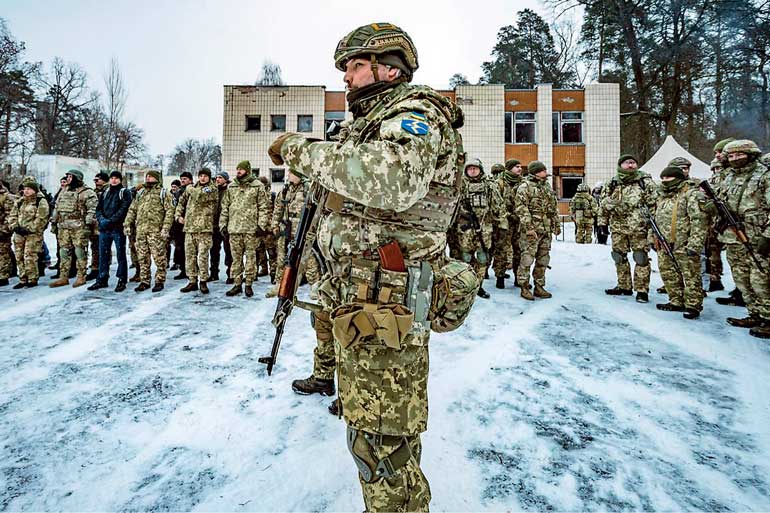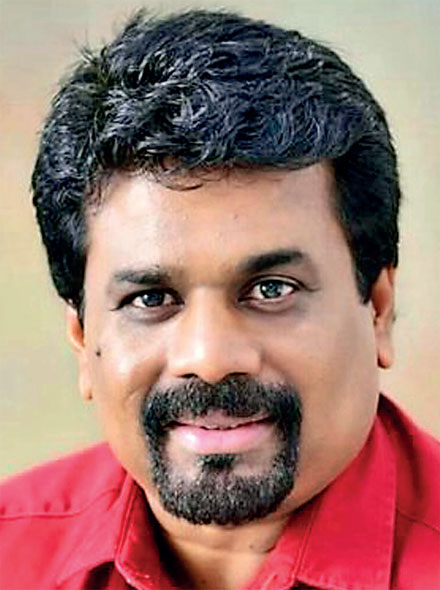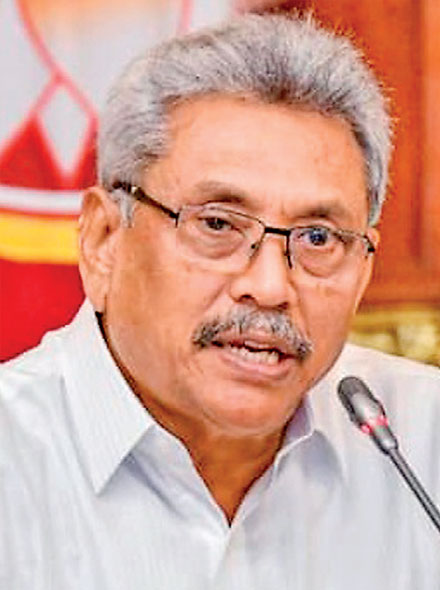dnesday, 2 March 2022 00:00
- - 419

Ukraine is under attack and by the time this article is published Kyiv would have fallen. This is the first major war in Europe since the Second World War other than the invasion of Georgia by Russia in 2008. There are heavy criticisms against Vladimir Putin, President of Russia all over the world.
Western countries tried hard to stop Putin taking this action. The French President and Chancellor of Germany visited Russia, but they failed. After the invasion the British Prime Minister called Putin a dictator and condemned the Russian act in the strongest terms.
This is a foreign policy failure of the Biden administration. US Senate Minority Leader Mitch McConnell and former US Secretary of State Mike Pompeo stated that if Donald Trump were in power this invasion would not have happened since he would have managed Russia in such a way.
It is obvious that NATO would not get involved militarily in the conflict since in that case it would easily escalate to a world war. Western nations will be confined to impose sanctions on Russia. Though those could be heavy sanctions, Russia could have survived. Russia is a big country and smaller countries such as Iran survived those sanctions although with great difficulties. Even Cuba survived for decades.
The strategy of the West was to extend NATO to the east so that Russia could be stressed. Since the end of the Cold War and the collapse of the Soviet Union, 14 countries of the eastern Europe have joined NATO. Those were Hungary (1999), Czechia (1999), Poland (1999), Bulgaria (2004), Estonia (2004), Latvia (2004), Lithuania (2004), Romania (2004), Slovakia (2004), Slovenia (2004), Albania (2009), Croatia (2009), Montenegro (2017) and North Macedonia (2020). Ukraine and Georgia are bordering Russia. Therefore, the position of Ukraine was very important to Russia in its national security point of view. Ukraine was considering joining NATO and the demand of Russia during the period of strengthening the military in the Ukrainian borders was that a firm guarantee that Ukraine would not join NATO.
This demand from the Russian side was quite natural and this can be compared with the Cuban missile crisis in 1962 where the Soviet Union tried to install missiles in Cuban soil which was only 140 km away from Florida. In the negotiations Khrushchev agreed to withdraw the missiles installed in Cuba and Kennedy agreed not to invade Cuba.
There are separatist movements in Ukraine as well as in Georgia. Luhansk and Donetsk of Ukraine were recognised by Russia as separate states on 25 February 2022. In Georgia, South Ossetia and Abkhazia are Russian backed and internationally unrecognised separate states. Pro-Western change of power in Georgia in 2003 triggered the Russo-Georgian conflict which escalated to a war in 2008.
In February 2014 protesters of Ukraine overthrew the pro-Russian President and the interim government signed trade agreements with the European Union (EU) which was the first step of the membership of the bloc. In April 2014 Russia invaded Ukraine and annexed the Ukrainian peninsula of Crimea. Two secessionist regions Donetsk and Luhansk broke off from Ukraine and the hostilities continued. From 2014 onwards the governments of Ukraine were pro-Western.
Finland is a country bordering Russia and had wars with the Soviet Union. It is a democratic country with Western ideologies. After the end of World War II, Finland signed an agreement with the Soviet Union ensuring its neutrality when Europe was divided into Western and Eastern Blocs. Finland did not join NATO and it did not join the EU during the Cold War period. It joined the EU in 1995 after the end of the Cold War. This process is called Finlandisation which is not a welcome word in Finland.
Union ensuring its neutrality when Europe was divided into Western and Eastern Blocs. Finland did not join NATO and it did not join the EU during the Cold War period. It joined the EU in 1995 after the end of the Cold War. This process is called Finlandisation which is not a welcome word in Finland.
This is the way to manage a powerful neighbour. This process is not welcome in Ukraine as well. The argument is that your foreign policy would be dented based on the aspirations of your powerful neighbour and in Ukraine there are strong anti-Russian sentiments. The reality is that they faced an unwanted war.
In 1977 in Sri Lanka, J.R. Jayewardene was elected to power with a popular majority. His economic policies and political affiliations were towards the West. Indira Gandhi, the Indian PM viewed this as a threat to the national security of India. Capitalising on the ethnic conflict of Sri Lanka she started providing arms and military training to the Tamil rebels, aiming to destabilise the country. She was successful. During the tenure of her son, Rajiv Gandhi, when Sri Lankan armed forces were in combat operation against the rebels, Indian Air Force invaded Sri Lanka air space and dropped humanitarian aid to the rebels. President Jayewardene was asked by the West to sort out the matters with India. He had only one sentiment to express. He said he along with the people of Sri Lanka were prepared to die in case of an Indian invasion. This is in line with the Ukrainian President Volodymyr Zelenskyy’s claim that they were fighting the war all alone.
This is the end result of non-Finlandisation. During the time of Mrs. Bandaranaike her economic and foreign policies aligned with those of India. Therefore, she did not pose any national security threat to India. Hence, she has taken independent decisions such as allowing Pakistani planes to use Sri Lankan air space to reach East Pakistan now Bangladesh during the Indo-Pakistan war in 1971.
When there are separatist movements in a country and that country goes against the perceived national security of a powerful neighbour, it risks its own national security and paves an easy access to the powerful neighbour for intervention as in the cases of Ukraine, Georgia, and Sri Lanka.
The present Sri Lankan regime, a close ally of China, is now moving towards India in the Indo-Chinese axis. They moved towards China in order to counter Indian claims of power sharing which is limited to the full implementation of the 13th amendment to the constitution. Probably only Sri Lanka is having unimplemented provisions in the national constitution which is a unique feature. This move touched the red line when the Chinese tried to invest in solar power projects in Northern Islands which are very close to the Indian soil.
The regime has delayed seeking IMF assistance for the current economic crisis which comes with economic conditions which would be beneficial to the country. The regime used to get currency swap assistance from China and now getting from India probably with the political conditions since there is no such thing called a free loan.
We have to wait and see the outcome of the current Finlandisation process of the Sri Lankan Government
https://www.ft.lk/columns/Ukraine-Sri-Lanka-and-the-price-of-non-Finlandisation/4-731291
Published in DailyFt on March 2, 2022



 This is the topic of the first chapter of the policy statement called ‘Rapid Response of Jathika Jana Balawegaya (NPP)’ launched recently.
This is the topic of the first chapter of the policy statement called ‘Rapid Response of Jathika Jana Balawegaya (NPP)’ launched recently. Agreement with NFE
Agreement with NFE